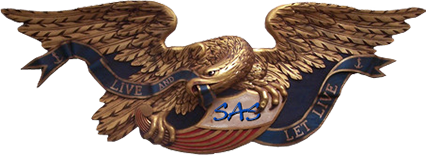I am sure that the RFC used radio as early as 1914 to talk to ground artillery and direct their guns onto enemy positions. I belive it was in the form of a Morse code sender. Cannot recall where I read or heard this....
I've just finished translating and commenting a book by an American reporter from 1914 and he describes the methods used by Zeppelins to signal to artillery batteries on the ground. Here's a quote on how the American reporter E. Alexander Powell described it in his book 'Fighting in Flanders' 1914. This was a very early description of course and things evolved over the course of the war years. Still, interesting to note that a gigantic machine like a Zeppelin didn't have a radio on board. That must have been due to the ground troops not having suitable equipment on the ground, not because of limited lift capability of the airships.
Anyway - the quote
________________________________________________
"Though the Zeppelin raids proved wholly ineffective, so far as their effect on troops and fortifications were concerned, the German aviators introduced some novel tricks in aerial warfare which were as practical as they were ingenious. During the battle of Vilvorde, for example, and throughout the attacks on the Antwerp forts, German dirigibles hovered at a safe height over the Belgian positions and directed the fire of the German gunners with remarkable success. The aerial observers watched, through powerful glasses, the effect of the German shells and then, by means of a large disc which was swung at the end of a line and could be raised or lowered at will, signalled as need be in code "higher--lower--right--left" and thus guided the gunners--who were, of course, unable to see their mark or the effect of their fire--until almost every shot was a hit. At Vilvorde, as a result of this aerial fire-control system, I saw the German artillery, posted out of sight behind a railway embankment, get the range of a retreating column of Belgian infantry and with a dozen well-placed shots practically wipe it out of existence. So perfect was the German system of observation and fire control during the final attack on the Antwerp defences that whenever the Belgians or British moved a regiment or a battery the aerial observers instantly detected it and a perfect storm of shells was directed against the new position."
 Author
Topic: DBW 1916 update v4 (UPDATED! 29.03.2019) (Read 458890 times)
Author
Topic: DBW 1916 update v4 (UPDATED! 29.03.2019) (Read 458890 times)


